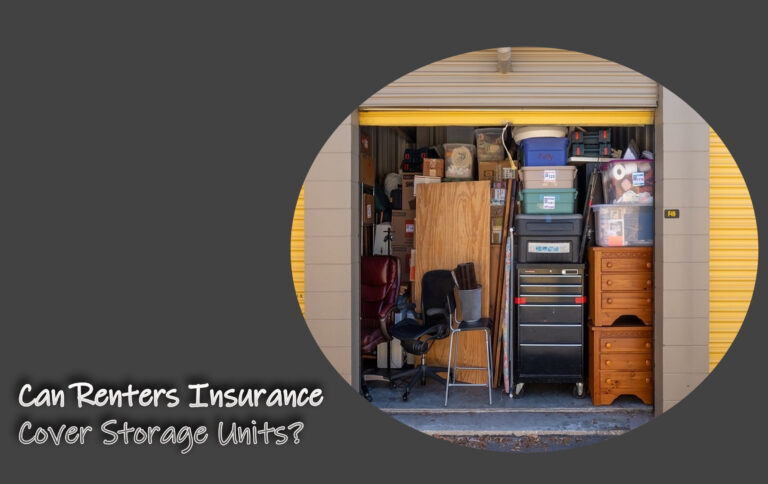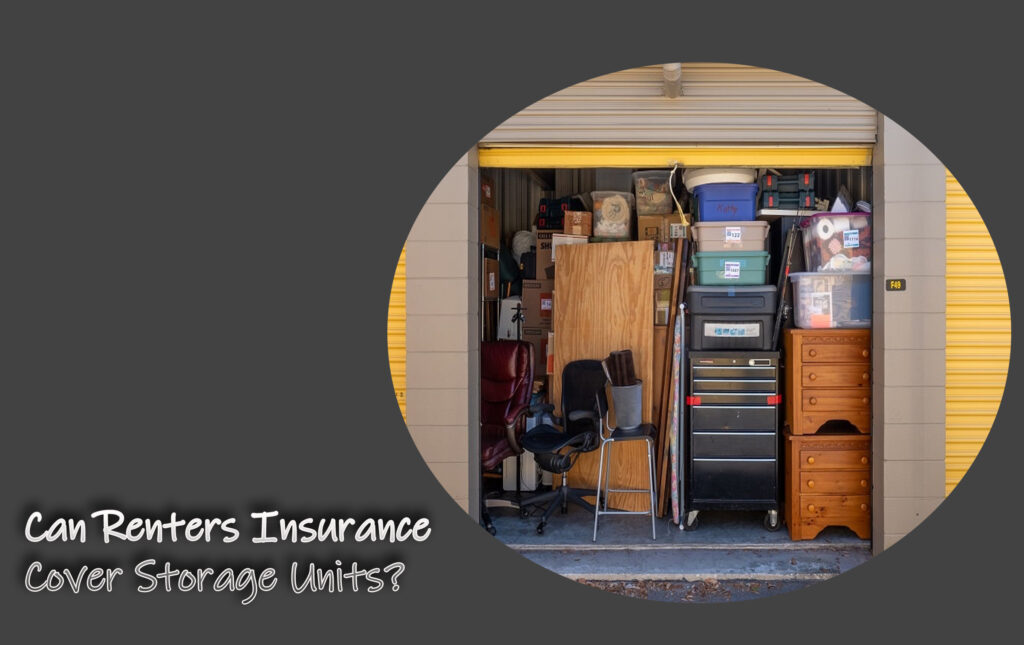
Can Renters Insurance Cover Storage Units? We’re all aware that Renters insurance is a valuable tool that protects tenants from unexpected losses, providing coverage for personal property, liability, and additional living expenses.

Now, while most people associate renters insurance with protection for belongings inside their rented apartment or home, many ignore the fact that coverage can extend beyond the four walls of the primary residence.
In today’s mobile and minimalist lifestyle, storage units are increasingly used to safeguard excess personal belongings. Whether you’re storing furniture, electronics, books, or sentimental items, it’s essential to understand how renters insurance applies to those items.
Fortunately, most renters insurance policies offer some level of protection for belongings stored away from your rental. But there are conditions, limitations, and exclusions you must keep in mind.
Does Renters Insurance Cover Items in Storage Units?
Renters insurance does cover personal property stored in a storage unit. But this is usually with limitations and under specific conditions. This coverage falls under something called the “off-premises coverage.”
The Off-premises coverage extends protection to your belongings even when they’re not inside your rental home, including in your car, a hotel room, or a storage unit.
However, the coverage limit for off-premises property is typically reduced compared to the full personal property limit on your policy.
Additionally, this off-premises protection usually applies only to covered perils such as theft, fire, vandalism, or certain weather events. Also, not to everything that could potentially damage your property.
Here’s what you should know about how standard renters insurance applies to storage units:
- Coverage is usually limited to a percentage (e.g., 10%) of your total personal property limit.
- Only covered perils apply (theft, fire, etc.).
- High-value items like jewelry may have sub-limits or require additional coverage.
- Protection doesn’t typically include damage from flooding, mold, pests, or neglect.
What Types of Damage Are Covered?
It’s very, very important you fully understand the specific perils that is included in your policy, because not all types of damage to stored items are covered.
Most standard renters insurance policies are named-peril policies, which means they only cover the types of damage specifically listed.
Here are examples of commonly covered perils when it comes to storage units:
- Theft: If someone breaks into your storage unit and steals your belongings, the renters insurance may reimburse you for the loss, up to the off-premises coverage limit.
- Vandalism: Any deliberate damage to your property by others, like graffiti or destruction of stored furniture is likely to be covered.
- Explosion or Riots: Though this is less common, damage from civil unrest or accidental explosions may be included under named perils.
- Fire and Smoke Damage: If a fire breaks out at the storage facility and damages your stored items, your insurance may cover the replacement or repair cost of those belongings.
- Lightning, Hail, or Windstorms: If a natural disaster (like a storm) causes damage to the building and, as a result, to your stored property, the policy may cover the damage.
When Renters Insurance Does Not Cover Storage Units
While this coverage does exist, it is limited and doesn’t apply to every scenario. Let’s look at the exclusion with this policy to avoid future mishaps:
Flooding and Earthquakes: Standard renters insurance doesn’t cover damage from floods or earthquakes. This means items stored in ground-level or poorly protected storage units are vulnerable.
Pests and Mold: Damage caused by rodents, insects, mold, or mildew is usually excluded. Even if the infestation started after you stored the items properly, you don’t get coverage.
Improper Storage or Negligence: If you store items improperly or fail to maintain them, then the resulting damage may not be covered.
Commercial Use: If you use your storage unit for business or store inventory for sale, your personal renters insurance likely won’t cover those items. You are more likely to need commercial property insurance.
How to Make Sure Your Stored Items Are Protected
To ensure your renters insurance offers adequate coverage for items in storage, here are the following practices you can consider:
- Review your insurance policy to understand the percentage and amount of coverage for off-premises property.
- Create a list of the items you’re storing, including photos, serial numbers, and receipts. This helps during the claims process.
- For high-value items like jewelry, collectibles, or electronics, you might want to consider adding a rider to increase coverage limits or cover additional risks.
- Some storage facilities offer separate insurance policies. These may supplement your renters insurance and offer broader protection.
Renters insurance can provide valuable protection for items stored in off-site storage units. But this coverage comes with limits and exceptions.
It covers common perils like theft, fire, and vandalism, but doesn’t protect against floods, mold, or pest damage. If you rely on a storage unit for safekeeping of your belongings. Then it’s very important to review your insurance policy carefully, document what you store, and consider additional coverage when necessary.